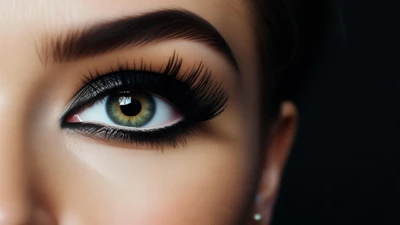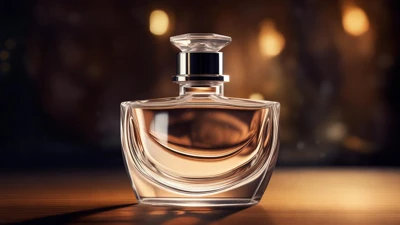
People often ask whether perfume oil or alcohol-based fragrance has better staying power.
The staying power of perfumes has always intrigued perfumers, chemists, and consumers. Many fragrances in the market are alcohol-based or oil-based. Deciding which one stays longer is scientifically challenging. Personal factors also play a role. Although alcohol-based perfumes dominate the market, perfume oils are gaining popularity for their staying power and exclusivity. This piece looks at the science behind the fragrances, how they are applied, external factors, and societal beliefs about their longevity. Studies and personal experiences back up the analysis.
I. Chemical elements are essential for achieving longevity.
A. Understanding the Volatility and Spread of Alcohol-Based Fragrances.
Perfumes like eau de toilette (EDT) and eau de parfum (EDP) use ethanol or isopropyl alcohol as a solvent. Once applied, these alcohols evaporate fast, aiding in the dispersion of fragrance molecules and creating a lasting scent trail. Volatility like this can be expensive. In 2018, researchers discovered that alcohol-based perfumes lose nearly half of their volatile top notes soon after being sprayed on the skin. Let's use Chanel No. as an illustration. When you wear 5, a traditional alcohol-based perfume, it usually lasts between 4 and 6 hours. The time may vary due to environmental conditions.
B. What Makes Perfume Oils Thick or Sticky?
Unlike other formulations, perfume oils are anhydrous and utilize carrier oils. g.to suspend fragrance molecules, oils like jojoba, coconut, or sweet almond work well. Due to their higher molecular density, these oils evaporate at a slower pace. One study in the Cosmetics journal in 2020 measured the longevity of the same fragrance in both alcohol-based and oil-based preparations. The oil version showed 75% scent retention after 8 hours. By comparison, the alcohol-based version showed only 30% retention. Brands such as Le Labo and Maison Louis Marie have taken advantage of this trend by promoting oil-based perfumes as fragrances that last all day.
From my personal experience, oil-based fragrances tend to last longer on my dry skin compared to alcohol sprays, which usually fade away in just a few hours. Using a dense oil gives a more intentional sensation, like locking the fragrance into your skin.
II. Strategies to Maximize Scent Retention During Application.
A. Layering Alcohol-Infused Perfumes: A Creative Process.
Alcohol-based perfumes are commonly applied as a spray to ensure even coverage on pulse points. To make fragrances last longer, perfumers suggest using layering techniques by applying matching body lotions or oils as a base. Customer reviews on Sephora confirm that using Tom Ford's Tobacco Vanille EDP alongside its body cream keeps the scent going for an additional 3 to 4 hours.
B. Targeted Placement of Perfume Oils Enhances Intimacy.
To apply perfume oils, they are usually dabbed or rolled onto specific parts of the skin. This process minimizes waste while requiring precision in placement. Ideal spots include behind the ears or along the décolletage. Perfume oils are seen as more personal by 68% of users in a 2021 FragranceX study. These users prioritize longevity over sillage.
Alkemia Perfumes, a cult-favorite brand, promotes its oil-based fragrance 'Black Honey' as a 'skin scent' that adapts to body chemistry. People have noticed that the honeyed tobacco fragrance lingers for up to 12 hours, significantly surpassing the usual 6-hour longevity of other alcohol-based scents.
III. Environmental Factors and Their Effects on Skin Chemistry.
A. How pH Levels Affect Oil Absorption.
One critical aspect of scent longevity is the pH of the wearer's skin. Alkaline skin has a pH higher than 6. There is a tendency for acidic fragrance molecules to be neutralized more quickly, and as a result, the wear time decreases. A 2019 study published in Skin Pharmacology and Physiology revealed that oil-based perfumes stick better to alkaline skin. This is because their lipid-rich carriers create a protective layer. To put it another way, when the skin's pH drops below 5, it becomes acidic. Reduces the rate of ethanol evaporation, thus extending the wear time of alcohol-based perfumes.
B. Humidity and Temperature.
Increased humidity accelerates the rate of alcohol evaporation. As a result, EDTs and EDPs degrade more quickly. Humid climates are ideal for oil-based fragrances. The oils stay hydrated due to the air's moisture content. Jo Malone's cologne wears off quickly in Miami, requiring reapplication every 3 to 4 hours.
On my Bali summer adventure, I gave both formats a try. I applied the alcohol-based Diptyque Do Son, but it didn't last until noon. In contrast, the oil-based Abel Parfum's Cyan Nori survived a rainstorm and a hike.
IV. How culture and consumer habits are perceived.
A. The Richness of Living Long.
Middle Eastern markets frequently deal with intense heat and humidity. In these conditions, oil-based attars become cultural staples. These highly concentrated oils, like Ajmal's Mukhallat Dahn Al Oud, are known for lasting 12 to 24 hours and are usually saved for special events. In contrast, Western markets focus on alcohol-based perfumes for their instant effect and connection to luxury brands such as Dior or Guerlain.
B. The Rise of Sustainability in Consumer Markets.
The clean beauty movement has made oil-based perfumes more desirable. Their reputation for being natural and eco-friendly attracts many users. The global perfume oil market's growth is forecasted at a CAGR of 7%. This information comes from a 2023 report by Grand View Research. Between 2023 and 2030, there will be a 2% expansion. The key factor is consumer interest in long-lasting and green products.
V. New Discoveries in Science and Future Developments.
A. Encapsulation Technology.
With advancements in microencapsulation, polymers are used to coat fragrance molecules. This reduces the gap between oil and alcohol formats. L'Oréal's 2022 patent describes microcapsules designed for extended fragrance wear. They let alcohol-based perfumes release scent over time, just as oil-based ones do.
B. Hybrid Formulations.
You can find hybrid fragrances from brands like Henry Rose and Heretic Parfum. These fragrances mix alcohol with oil-based carriers to improve longevity and diffusion. The progress made suggests that oil and alcohol formats might merge in the foreseeable future.
A Word From Beautyvs: The Balance of Science and Sensibility.
Comparing the longevity of perfume oils and alcohol-based perfumes isn't as straightforward as an either/or decision. Oils usually outperform alcohol-based substitutes in terms of duration. This advantage stems from their slow evaporation and skin-binding qualities. Factors such as technique, skin chemistry, and external conditions still play critical roles. In the end, the decision between the two formats shows what people care about. Some who want a strong but short-lived impression may prefer alcohol sprays. Others who value being subtle and long-lasting might choose oils. As someone who loves fragrances, I use oils every day and save alcohol-based perfumes for when I want to make a lasting impression. Fragrance is special because it is both enduring and momentary.














